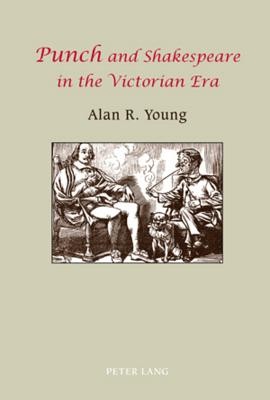
- We will send in 10–14 business days.
- Author: Alan Young
- Publisher: Peter Lang UK
- ISBN-10: 3039110780
- ISBN-13: 9783039110780
- Format: 15.2 x 22.9 x 1.8 cm, minkšti viršeliai
- Language: English
- SAVE -10% with code: EXTRA
Reviews
Description
The English humour magazine Punch, or the London Charivari, which first appeared in 1841, quickly became something of a national institution with a large and multi-layered readership. Though comic in tone, Punch was deeply serious about upholding high literary and artistic standards, about dealing with serious subject-matter, and about attempting to nurture its readers' appreciation of the national drama and of Shakespeare's plays in particular. The author's detailed examination of Punch's constant advocacy of Shakespeare reveals telling new evidence concerning the ubiquitous presence of Shakespeare within Victorian culture. New research in the Punch archives and elsewhere also reveals the identities of many of the Punch authors and artists. The author shows how those who worked for Punch often subsumed their collective identities within the single persona of Mr. Punch, a fictional creation who repeatedly presents himself in both texts and graphics as a close friend and admirer of Shakespeare, a man able to remind Victorian readers constantly of the supreme literary and moral values represented by Shakespeare's works.
EXTRA 10 % discount with code: EXTRA
The promotion ends in 23d.03:26:01
The discount code is valid when purchasing from 10 €. Discounts do not stack.
- Author: Alan Young
- Publisher: Peter Lang UK
- ISBN-10: 3039110780
- ISBN-13: 9783039110780
- Format: 15.2 x 22.9 x 1.8 cm, minkšti viršeliai
- Language: English English
The English humour magazine Punch, or the London Charivari, which first appeared in 1841, quickly became something of a national institution with a large and multi-layered readership. Though comic in tone, Punch was deeply serious about upholding high literary and artistic standards, about dealing with serious subject-matter, and about attempting to nurture its readers' appreciation of the national drama and of Shakespeare's plays in particular. The author's detailed examination of Punch's constant advocacy of Shakespeare reveals telling new evidence concerning the ubiquitous presence of Shakespeare within Victorian culture. New research in the Punch archives and elsewhere also reveals the identities of many of the Punch authors and artists. The author shows how those who worked for Punch often subsumed their collective identities within the single persona of Mr. Punch, a fictional creation who repeatedly presents himself in both texts and graphics as a close friend and admirer of Shakespeare, a man able to remind Victorian readers constantly of the supreme literary and moral values represented by Shakespeare's works.


Reviews